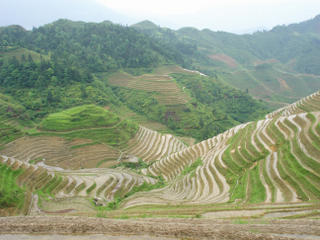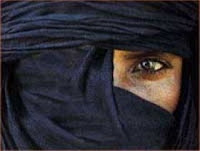Reflections on China

A group of us had a dinner of Beijing (Peking) duck in a Hutong last night. Hutongs are the traditional Chinese neighborhoods that have managed to survive, so far, in ultra-modern Beijing and other cities. Strolling the narrow streets of the Hutong after, only a few minutes earlier, walking the wide boulevards of Beijing, paints the contrasts and contradictions that are China today.
China is not communist. Let's just get that out of the way. The only resemblance to communism that this country bears is that it is a one-party state. The "Communist" party still rules, but they are in on the economic boom that is making millionaires and industrial workers out of farmers. In a country where saving face is paramount, form over substance dictates that the leaders use the title "communist" to describe their party, although Mao ZeDong would roll in his grave (actually in his glass case in Tienanmen Square) if he saw how China is leading the capitalist world (the Chinese economy grows appx 3x faster than the American economy).
I can't imagine what it must be like to have lived through the Cultural Revolution and to see what's going on now. What a mind fuck. Only 30 years earlier, the rich were paraded down streets for public hecklings, their books were burned, peasants were given priority in top positions and the government despised everything foreign. In the last 5-10 years, the government has transformed the landscape of major cities to make them look like London, Paris and New York. You can't spit (and all the Chinese spit) without hitting a Coca-Cola sign and the Taiwanese are some of the richest businessmen, dumping endless amounts of capital into Shanghai, the commercial center of China.
During Communist times, the peasants were not permitted to leave their farms. Now, it is estimated that between 90 million and 300 million farmers have left the countryside to find opportunity in the cities (even on the low end, that is the size of the American workforce) and there are millions more on the way. Next time you see a tag that says "Made In China", you know who made the product. Entire villages have changed from farming to specialty products. Some are known for making buttons, zippers, belts, etc.
Exhausted farmers making everything conceivable results in the "almost" factor, which is hard to miss here in China. Everything is almost, but not quite. Buy a Chinese product and it will work, but not perfectly. The clothes will have a wily thread and the hotel, although appearing immaculate, will have a loose tile. The funniest example of the "almost" factor was the negative review of a movie that someone most certainly cut and paste from the internet onto the case of the DVD for that movie with no idea what it said. It's funny, but very scary when you realize that the Chinese are now making parts that Boeing incorporates into its airplanes. Saving face requires saying that something works even if it doesn't so as not to bring shame to yourself or your superiors. Remember the next time you step into Satan's Temple, i.e. Wal-Mart, that you get what you pay for. The conflict between being a consumer and being a shareholder will soon bite all of us in the ass.
The 2008 Olympics is only accelerating the pace of China's modernization and, undoubtedly, this place will not be or look the same in another 5-10 years.








